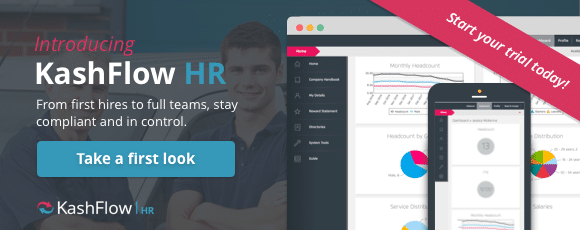Employee Performance & Appraisals
What are employee appraisals?
Employee appraisals are a method of evaluating employee performance and providing feedback on it. Performance appraisal of employees should be part of an ongoing development program between employers and their teams.
It is advised that a record is kept of employee appraisals, so there should be both written and verbal feedback.
The goals of personnel performance appraisal
Going into employee appraisals, you should have a clear vision of what you want to achieve. It’s likely your goals will include:
- Developing and maintaining records of employee performance for you to use as evidence for pay raises, promotions, terminations and more.
- Identifying employee strengths and weaknesses, so you know the right person is doing the right job.
- Encouraging the growth and development of your employees and providing feedback on their performance.
- Creating a positive and development-led workplace culture.
How to monitor employee performance
There are several ways to monitor employee performance and give a performance review, these vary from a traditional performance appraisal of employees to employee-led approaches.
In a traditional employee performance review, the employee will sit down with a manager and discuss their performance against targets and their job description. This should be done at the end of a set period, for example the end of the year or every financial quarter.
This work appraisal will cover the manager’s observations on the employee’s performance and abilities. It should also give the employee an opportunity to talk about their progression, personal goals and feelings towards the company.
From this talk, the manager should be able to identify areas of improvement and develop plans that support this.
 Alternative forms of workplace appraisal
Alternative forms of workplace appraisal
Beyond the traditional method, you can find ways to further include employees in their work appraisals.
In a self-appraisal, the employees monitor their own performance against set goals. Doing this can encourage autonomy, and drive personal development.
With self-appraisal, the employee comes to their work appraisal meetings with a better understanding of their achievements and areas they need to work on. This can add more value to the meetings overall and encourage a deeper conversation on personal development.
Alternatively, you could adopt a “360-degree” approach. This incorporates feedback from you as the manager, peer evaluation from colleagues, self-evaluation from the employee and also feedback from customers and clients where relevant.
This approach is particularly suited to medium and large businesses. It’s also a valuable way to assess management, as it gives a clearer view of how the individual is perceived by the company as a whole.
You may also find that employees request a performance review. If you want to adopt an employee-initiated review system then you should let employees know they can ask you for a review. This shouldn’t replace traditional employee performance reviews though.
Keeping a record of work appraisals
Recording the outcome of these appraisals is important for both internal and external, legal, reasons.
Having a record of how the employee has performed to date, and their targets for the future, gives you something that can be referred to at the next appraisal. This makes the process smoother, and keeps the ongoing conversation focused.
Documenting employee performance on appraisal forms is usually recommended because it also gives employers wider legal protection.
As personnel performance appraisals are used to support promotions, contract terminations, pay rises or role changes, they’re usually a key part of employee discrimination suits. Keeping proper documentation is therefore advised, as it can help prove you are staying legally compliant.
Staying legally compliant in employee appraisals
To help keep your personnel performance appraisal in line with the expected criteria, you should:
- Properly communicate job expectations, how the appraisal system works, and how it’ll affect an employee’s status.
- Make sure the way you measure performance is related to the job being performed.
- Ensure any line managers are trained in providing and following up on objective feedback.
- Hold regular appraisals and make sure that any problems are being flagged early so that employees have time to work on improvement.
- Give employees enough time and support to act on any feedback given.
As employee appraisals have a legal status, it may be worth reviewing your process with a qualified lawyer.
Why give an employee appraisal?
Employee appraisals are an important part of staff development. One of the main goals of work appraisals is to improve productivity by assigning clear goals and objectives to employees.
Through employee performance review, you can better identify what is required of specific job roles and then see how employees perform in these roles. This is useful if you currently have a handful of employees that take multiple roles within the company, but you are looking to restructure and assign specific responsibilities to your employees.
Following up on performance appraisal of employees
Work appraisals should act as part of a wider employee performance review, with regular feedback and help offered to employees in support of meeting the goals set in these meetings.
Steps should also be taken to make sure the employee is equally committed to improving their performance – for example incentivising goals or providing key performance indicators (KPIs) that employees can track themselves.
It’s important that employee appraisals are focused on staff well-being and development. If appraisals are only undertaken when building a case to fire someone, then they’ll get a bad reputation within your business. This negative atmosphere will result in a lack of trust in (and loyalty to) management, which will result in higher staff turnover.
Making work appraisals easier with KashFlow HR
HR software like KashFlow HR provide performance management tools that help you create personal development plans. This makes it easier for management to identify skill gaps and create actionable development plans. You can also save your appraisal documents in a secure cloud space, and add notifications to remind you when updates are due.

